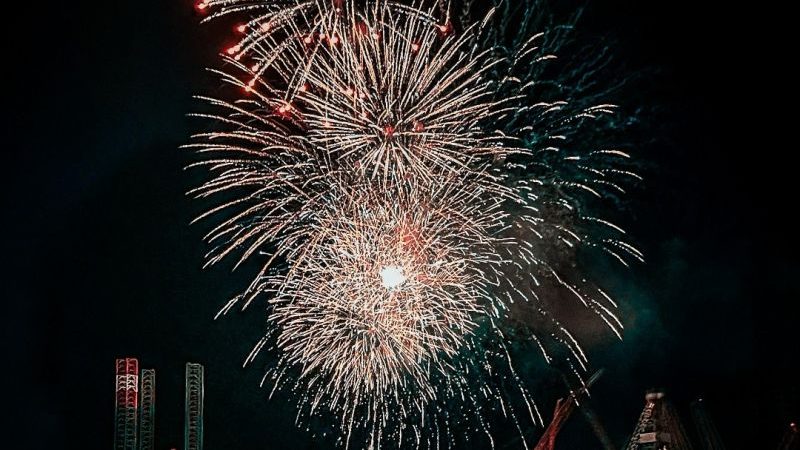The Essence of BYU Tattoos: A Fusion of Faith and Expression

Body art has long been a form of self-expression, telling stories, and representing personal beliefs. In recent years, tattoos have evolved from mere symbols of rebellion to profound statements of identity and faith. One such unique trend is the emergence of BYU tattoos, a captivating fusion of religious devotion and artistic expression. This phenomenon, primarily associated with Brigham Young University (BYU), reflects a deep connection between individuals, their beliefs, and the desire to showcase them in a visually compelling way.
BYU and Its Unique Identity:
Brigham Young University, located in Provo, Utah, is affiliated with The Church of Jesus Christ of Latter-day Saints (LDS Church). The university’s strong emphasis on values, morals, and religious teachings has shaped a unique culture that extends beyond the campus grounds. BYU’s Honor Code, which includes guidelines on dress and grooming standards, has inspired a subculture of students and alumni expressing their commitment to these principles through ink on skin.
The Spiritual Canvas:
BYU tattoos often serve as a spiritual canvas, where individuals choose symbols and images that hold personal significance within the framework of their faith. Popular choices include depictions of the Salt Lake City Temple, angel Moroni, or excerpts from the Book of Mormon. These tattoos go beyond mere aesthetic appeal; they become visual testimonies of one’s dedication to the principles taught at BYU and the LDS Church.
Expressions of Faith:
Tattoos have become a medium for individuals to outwardly express their faith and spirituality. In the case of BYU tattoos, they serve as constant reminders of the values instilled during the university years. For some, it’s a symbol of gratitude for the education and spiritual growth gained at BYU. Others see it as a way to share their faith with the world, fostering connections with like-minded individuals and sparking meaningful conversations.
Navigating the Honor Code:
While tattoos are generally accepted at BYU, certain guidelines within the Honor Code need to be observed. For instance, tattoos should be modest and not convey messages that contradict the teachings of the LDS Church. This balance between personal expression and adherence to the university’s values showcases the commitment of individuals who choose to get inked with symbols of their faith.
BYU Tattoos Beyond Campus:
The impact of BYU tattoos extends far beyond the university grounds. Alumni and individuals who share the values upheld by BYU use tattoos as a way to carry a piece of the university with them throughout their lives. These tattoos serve as lifelong connections to the memories, friendships, and spiritual experiences that shaped their time at BYU.
Artistic Interpretations:
BYU tattoos showcase a diverse range of artistic interpretations, with each individual infusing their unique style into religious symbols. Talented tattoo artists collaborate with clients to create designs that seamlessly integrate faith and aesthetics. Whether it’s a minimalist depiction or an intricate mural, the artistry behind BYU tattoos is as varied as the stories they tell.
Navigating Stereotypes:
The existence of BYU tattoos challenges stereotypes associated with both tattoos and religious institutions. It highlights that inked individuals can be deeply spiritual, and religious individuals can embrace non-traditional forms of self-expression. This intersection of seemingly contrasting elements creates a rich tapestry of diversity and acceptance within the community.
Community and Connection:
BYU tattoos foster a sense of community and connection among individuals who share similar beliefs and values. The visible expression of faith creates an immediate bond, transcending the boundaries of age, graduation years, or backgrounds. It becomes a shared language that unites a diverse group of people under a common umbrella of spirituality and shared experiences.
Conclusion:
BYU tattoos represent a fascinating convergence of faith, identity, and artistry. As more individuals choose to express their devotion to the principles taught at Brigham Young University through ink, the phenomenon continues to evolve. Beyond being mere body art, these tattoos serve as powerful testaments to the enduring impact of religious education and the unique culture that defines the BYU experience. In a world that often struggles with division, BYU tattoos stand as tangible symbols of unity, shared values, and the timeless pursuit of spiritual growth.
. What is a BYU tattoo? A BYU tattoo refers to a tattoo that incorporates symbols, images, or text associated with Brigham Young University (BYU) and its affiliation with The Church of Jesus Christ of Latter-day Saints (LDS Church). These tattoos often reflect the individual’s commitment to the values and principles taught at BYU.
2. What are some common symbols used in BYU tattoos? Popular symbols in BYU tattoos include depictions of the Salt Lake City Temple, angel Moroni, or excerpts from the Book of Mormon. These symbols hold significance within the LDS Church and are often chosen as expressions of faith and identity.
3. Can anyone get a BYU tattoo, or is it exclusive to students and alumni? BYU tattoos are not exclusive to current students or alumni. Individuals who share the values and principles taught at BYU, regardless of their affiliation with the university, may choose to get a BYU-themed tattoo to express their faith and commitment.
4. How does getting a tattoo align with BYU’s Honor Code? While tattoos are generally accepted at BYU, individuals must ensure that their tattoos comply with the guidelines outlined in the Honor Code. Tattoos should be modest and not convey messages that contradict the teachings of the LDS Church.
5. Are there specific tattoo artists known for creating BYU tattoos? Many skilled tattoo artists collaborate with individuals to create unique BYU-themed designs. Individuals interested in getting a BYU tattoo should seek out experienced artists who can capture the essence of their faith while incorporating artistic elements.
6. What role do BYU tattoos play beyond the campus? BYU tattoos often serve as lifelong connections to the memories, friendships, and spiritual experiences individuals had during their time at the university. These tattoos extend beyond campus boundaries and become personal expressions of faith and identity throughout one’s life.
7. Do BYU tattoos have a specific style, or can they vary in design? BYU tattoos can vary widely in design and style. Some individuals opt for minimalist designs, while others choose intricate and detailed artwork. The diversity in artistic interpretation allows for personal expression while maintaining a connection to BYU’s values.
8. How do BYU tattoos challenge stereotypes? BYU tattoos challenge stereotypes associated with both tattoos and religious institutions. They demonstrate that individuals can be deeply spiritual while embracing non-traditional forms of self-expression. The intersection of faith and body art creates a space for diversity and acceptance within the community.
9. Is there a community surrounding BYU tattoos? Yes, a sense of community often forms among individuals who have BYU tattoos. The visible expression of faith creates a bond that transcends differences, fostering connections among people who share similar beliefs and values. BYU tattoos become a shared language that unites a diverse group under a common spiritual umbrella.
10. Can non-LDS individuals get BYU tattoos? While BYU tattoos are often associated with LDS Church members and the university’s values, non-LDS individuals who resonate with these values and principles are not restricted from getting BYU-themed tattoos. The key is a personal connection to the faith and a desire to express those values through body art.






